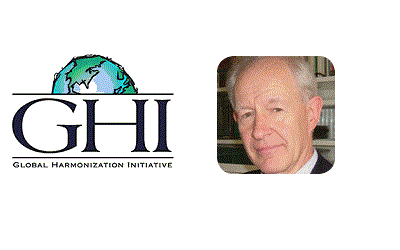Inside BENEO’s new pulse plant: pioneering sustainable protein from faba beans
While globalisation of world trade has created new pathways to economic growth for many nations, the trend toward a ‘one-world economy’ has also exposed critical differences in international laws and regulations that are designed to protect the world’s citizens. These differences may result in needless destruction of healthy food and hamper introduction of new technologies designed to make food healthier and safer. Hence in 2004, members of the international division of the Institute of Food Technologists (IFT) and representatives of the European Federation of Food Science and Technology (EFFoST), the European section of the International Union of Food Science and Technology (IUFoST), decided to try to change this undesirable and globally harmful situation. After a series of meetings and workshops, in 2007 the Global Harmonization Initiative (GHI) was officially established.
In an email interaction with NuFFooDS Spectrum, Huub Lelieveld, President of the Global Harmonization Initiative (GHI), Member of the Executive Committee and a Past-President of EFFoST, shared his thoughts on achievements and progress made by GHI in harmon- isation process.
What are the major achievements in the last decade?
It is difficult to show, because GHI has not yet produced any global consensus document. Nevertheless, the regulatory world or at least a part of it, has noticed that GHI exists and GHI is asked for opinions, in which case we ask specialists from our global network for their input. This seems to work very fast. More visible results are many publications, including the book Ensuring Global Food Safety – Exploring Global Harmonization. Currently GHI is working on a second book, working title Safety of Tradition- al and Ethnic Foods, to be published in 2015. GHI members, and in particular GHI Ambassadors, are invited by governments for advice. Hence yes, there are achievements, but not yet to the extent that we want.
What challenges has GHI been facing in bringing stakeholders on a single platform?
The big challenge is that we have many volunteers willing and ready to work on important topics, but because of the principle that GHI wants to remain impartial and therefore refuses direct funding from industry or governments, there are hardly any funds for people to travel and meet and that slows down progress. The good news is that recently a charity has been founded that intends to raise funds solely in support of GHI and GHI accepts funds from charities.
When it comes to developing world more so with India, what kind of issues India needs to overcome?
India as a country cannot be a part, no country can. The GHI consensus seeking programme is based solely on individuals, not representing any government or industry. Indian scientists are among GHI members and actually one of GHI’s founding board member is from India and GHI has an ambassador in India.
In India who can take the lead in working with all the stakeholders for global harmonizaton?
GHI could do with more Indian specialists who join GHI working groups. All working groups can do with specialist input to develop concept con- sensus papers.
If yes how much time will GHI take to see harmonization of food legislation?
It depends on the subject. GHI is developing a global systematic approach to decide on chemical food safety, addressing the procedure rather than the (thousands of) individual chemicals.
Can global harmonisation of food legislation be achieved?
Yes, GHI believes so, it is in the constitution and we trust that scientists joining GHI believe so too, otherwise joining would be useless.

